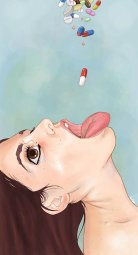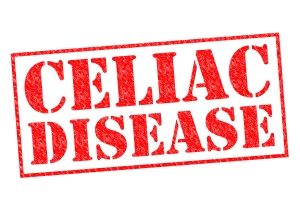When I was ten years old, I remember a specific visit to the pediatric clinic in which I was diagnosed with strep throat. When we arrived at the doctor, I remember feeling terrible; high fever, vomiting, chills, the works. A positive strep test and a couple doses of amoxicillin later, I was up and running like any other kid my age.
When I was 19 years old, I remember a specific visit to my gastroenterologist in which I was diagnosed with gastroparesis. When I arrived at the doctor, again, I remember feeling terrible; high fever, vomiting, chills, the works. The main difference this time was that I had been sick for four months, and I clearly didn’t have strep throat. I remember the physician’s assistant cleared his throat as he sat down at the desk chair beside the examination table to tell me that my gastric emptying exam was abnormal, excuse me, “strikingly” abnormal.
When I left the appointment, I ran to my mom and told her (while smiling) that I finally had a diagnosis, a medication and I was going to get better. A month later, after I continued to lose weight, my file was transferred to a research hospital. Six months later, I was taking six medications four times a day. This was the first time I began to fully tolerate solid food. And now, eleven months out from diagnosis, I finally feel that my doctors have fully indoctrinated me into what my condition entails.
I will not ever “get better.”

Now, stay with me. This doesn’t mean I won’t have good days. This doesn’t mean I won’t spend evenings (regretfully) eating entire pepperoni pizzas or that I choose not to eat myself silly on Thanksgiving. This doesn’t mean that I live at the hospital, that I spend all day in bed every day or that I am somehow exempt from every day life.
But certainly it does mean something. I will always, yes, always, take pills. I will always need more sleep and experience more fatigue, because my body will always be working harder than a typical body. I will have periods that I can’t eat solids, periods that I can’t consume anything. I will have periods of better and periods of worse, and I will most definitely always vomit at the most inopportune moments (even on the most inopportune people). But with all of that being said, still, the hardest thing for others to understand about me is that
I’m not dying.
For the chronically ill, one of the most difficult things to achieve is the support and understanding of those around us. In this day and age, we hear a lot about young people with horribly aggressive diseases who are, in some cases, dying. And yes, I fully believe we need to continue to talk about these cases. But in between the typical twenty-somethings and the medical tragedies are a group of young people struggling with a (or many) chronic, life-long illness.
For the most part, we don’t look sick, and, unless you know us well, you probably would never suspect the amount of medication it took to get us out of bed this morning. Even then, we move forward and have found ways to incorporate fatigue, physical pain and various treatment schedules into the existing chaos of being a young adult.
What’s important to remember is that we don’t want pity or unnecessary special treatment, we don’t want to be babied, we don’t want treatment suggestions and, once again, we do not want to buy your diet plan. Or to hear about your distant family member that was healed by a shaman.
We want to know that you believe us and that you care, even when you don’t understand. Because, although we’re not getting “better” in the way you understand it, we are all in the middle of a healing process.

Until next time,
Emily
~Celiac Disease, Gastroparesis, Rheumatoid Arthritis~








